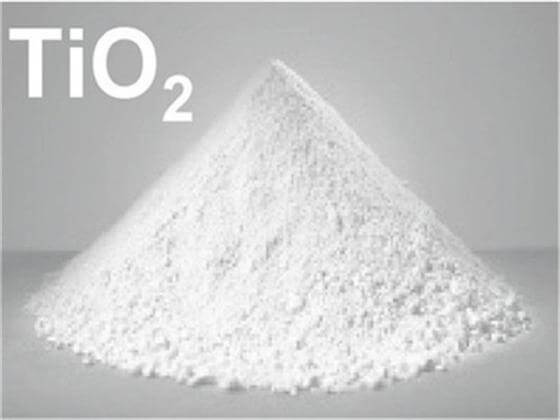Titanium dioxide is a white pigment that is used in a variety of products, including paint, sunscreen, and food coloring.
It is also an important ingredient in many industrial processes.
Titanium dioxide is made up of oxygen and titanium, and it is found in nature as a mineral known as rutile.
When used as a pigment, titanium dioxide gives products a bright white color.
It is also very scattering, meaning that it helps to reflect light.
This makes it an important ingredient in sunscreen as it helps to reflect ultraviolet rays away from the skin.
Titanium dioxide is also used as a food coloring agent and as an opacifier in certain products.
In industry, it is used in everything from paint manufacturing to food processing.
How Is Titanium Dioxide Processed?
Titanium dioxide is one of the most widely used minerals in the world, thanks to its brilliant white color and its resistance to discoloration.
This versatile mineral can be found naturally in the form of ilmenite or rutile, but these minerals must first be mined from the earth.
The next step is to treat the ore with sulfuric acid, which produces titanium sulfate.
This sulfate is then further purified and heated until it forms titanium dioxide.
In its final form, titanium dioxide is a fine white powder that is perfect for use in a variety of applications.
Is Titanium Dioxide Safe For Dogs?

Titanium dioxide has been used for years as an animal food additive but recent studies have now found it unsafe for dogs, cats, and other animals.
According to studies by the European Food Safety Authority, titanium dioxide can no longer be used as a safe food additive because the studies linked it to genotoxicity.
Genotoxicity is the ability of a substance to damage the genetic information within cells.
This means that titanium dioxide can cause mutations and cancer in animals, though it is still unclear whether this effect occurs at safe levels of exposure.
Even though titanium dioxide absorption is very low in dogs after ingestion, it can still accumulate in the body over time and thereby modify the genes.
Granted, it may not be very toxic but on the other hand, there is no nutritional benefit of using this additive—it is only beneficial as a coloring agent but it will not improve the nutrition of your pet.
As such, you have everything to gain in not feeding your dog any foods that have it and nothing to lose.
There is also the concern of user safety for the pet parents.
Studies have shown that titanium dioxide may be carcinogenic if inhaled.
This means that the process of serving your furry baby may be exposing you to the carcinogenic compounds in the food which you may not realize immediately because it accumulates in the body over time.
The findings that titanium dioxide is genotoxic are relatively new and as such, the additive is still authorized for use in pet foods.
This means food manufacturers are still within their legal right to use it.
It is therefore a good idea to be extra vigilant when shopping for dog food by checking the ingredient label and avoiding products that have titanium dioxide.
What Should You Do If Your Dog Has Been Poisoned By Titanium Dioxide?
If you suspect that your dog has been exposed to titanium dioxide and is showing signs of illness, such as vomiting, diarrhea, or excessive drooling and irritation, it is important to seek veterinary care immediately.
Your vet will be able to perform tests on your dog’s blood and urine to determine if the toxic effects are ongoing.
They may also treat your dog with medications or IV fluids to help him recover.
Closing Thoughts
To sum it up, titanium dioxide is a versatile mineral that has many uses in industry and consumer products.
Its brilliant white color coupled with its resistance to discoloration has made it a popular food coloring agent in food and other household products.
Even though it was considered safe for years, recent studies have now deemed it dangerous due to its carcinogenic properties in humans and genotoxicity qualities in dogs and other animals.
It is therefore a good idea to avoid any dog food that uses this additive.
If you suspect that your dog has been poisoned by titanium dioxide, seek veterinary care immediately to receive the proper treatment.
You may also want to check:
Is Polyethylene Glycol Safe For Dogs?
Is Silicon Dioxide Safe For Dogs?
Is Magnesium Stearate Safe For Dogs?
As an Amazon Associate, we may receive a small commission from qualifying purchases but at no extra cost to you. Learn more. Amazon and the Amazon logo are trademarks of Amazon.com, Inc, or its affiliates.

